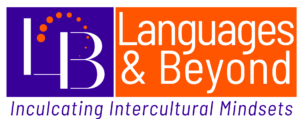DELE & DELF Exam Preparation Courses
DELE & DELF Exam Preparation Courses
Here Are Some Of the Language Proficiency Exams Taken by Students World-Wide
DELE Escolar (Spanish)
The DELE (Diploma in Spanish as a Foreign Language) is an official qualification accrediting the degree of competence and mastery of Spanish language, granted by the Instituto Cervantes on behalf of the Ministry of Education and Vocational Training of Spain.
DELF Junior (French)
DELE Escolar & DELF Junior Preparatory Course
If students wish to take the DELE Escolar or DELF Junior Exam, we offer preparatory courses. It consists of practice of past exam papers and a mock test so that students are acquainted with the exam format and are well-prepared for the exam.
Get in Touch with Us
Frequently Asked Questions
Are these exams worth it?
How difficult are these exams?
Which are the keys to pass the exams?
Do these exams require preparation?
These exams are based on practice and not only on theoretical knowledge. This is why some young learners fail despite a good mastery of grammar. Students must be exposed to the language with a certain consistency to master comprehension and oral expression. Students who join a structured language program always have more chances to succeed because they are holistically acquainted with the language.
